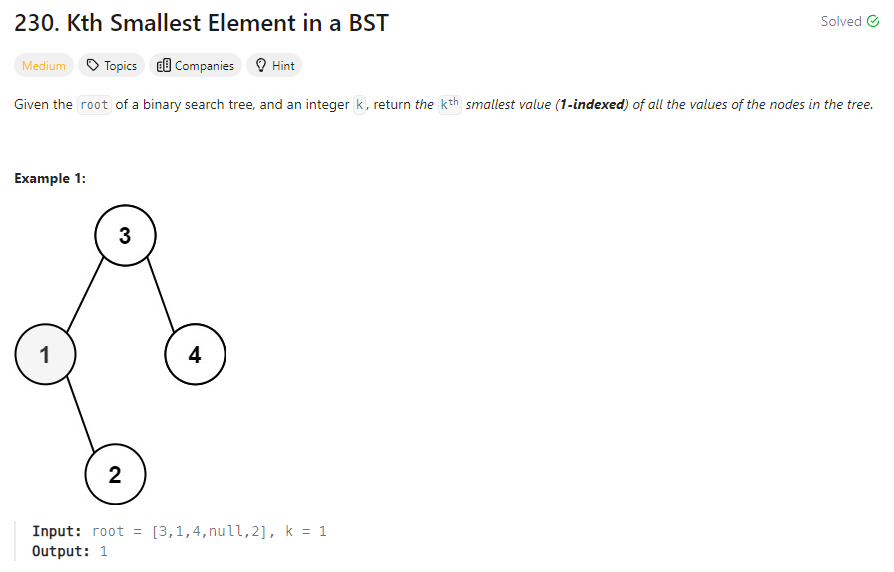Problem of The Day: Kth Smallest Element in a BST
Problem Statement
See problem
Intuition
I need to find the kth smallest element in a binary search tree (BST). Since it’s a BST, I can utilize its properties to efficiently find the kth smallest element. Basically, I think it’s an inorder traversal with a few minor changes in the code.
Approach
I’ll perform an in-order traversal of the BST while maintaining a count of visited nodes. When the count becomes equal to k, I’ll return the value of the current node. This is possible because an in-order traversal of a BST visits nodes in ascending order.
Complexity
-
Time complexity: O(n), where n is the number of nodes in the BST. In the worst case, I might need to traverse all nodes to find the kth smallest element.
-
Space complexity: O(h), where h is the height of the binary search tree. This is because the recursion stack’s maximum depth is determined by the height of the tree during the in-order traversal.
Code
# Definition for a binary tree node.
# class TreeNode:
# def __init__(self, val=0, left=None, right=None):
# self.val = val
# self.left = left
# self.right = right
class Solution:
def kthSmallest(self, root: Optional[TreeNode], k: int) -> int:
count = 0
def helper(node):
nonlocal count
if not node:
return 0
L = helper(node.left)
count += 1
if count == k:
return node.val
R = helper(node.right)
return L or R
return helper(root)
Editorial Solution
class Solution:
def kthSmallest(self, root, k):
"""
:type root: TreeNode
:type k: int
:rtype: int
"""
def inorder(r):
return inorder(r.left) + [r.val] + inorder(r.right) if r else []
return inorder(root)[k - 1]
